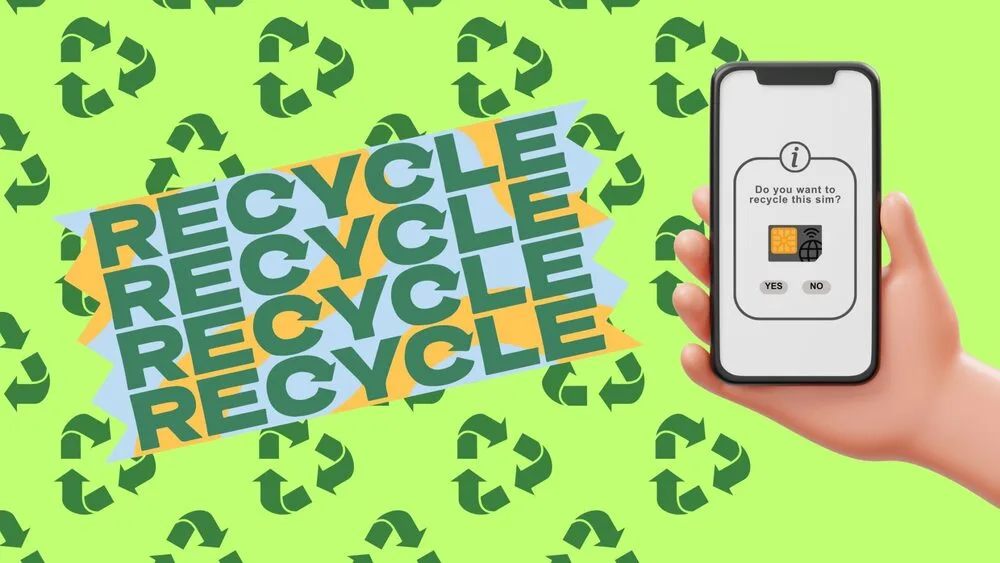Home |
Understanding Mobile Number Recycling: What to Know Before You Recycle Your Phone
April 15, 2022


In today’s digital age, the concept of recycling extends beyond just plastic bottles and old newspapers; it now includes mobile phones and the numbers associated with them. Mobile number recycling is a process that can greatly impact how consumers manage their contact information, privacy, and data security. As users frequently upgrade their devices, understanding the intricacies of mobile number recycling becomes essential. We will delve into what mobile number recycling entails, how it works, and the necessary steps to ensure a smooth transition when you recycle your phone number.
What is Mobile Number Recycling?


Mobile number recycling refers to the process wherein a previously assigned mobile phone number is reallocated to a new user after the original owner has discontinued their service. When a consumer decides to recycle their phone, they may also be changing their mobile number, which could have implications for their personal data and privacy. The recycling process allows mobile service providers to effectively manage their pool of numbers, ensuring that old numbers are reassigned in a manner that minimizes issues related to privacy breaches or fraud. This ensures that new users can seamlessly integrate their new number into their accounts, communication, and social media platforms without the fear of encountering messages or calls intended for the previous owner.
How It Works
The process of mobile number recycling begins when a user decides to discontinue their service with a mobile provider. Upon account closure, the user’s old mobile number may be placed into a waiting period before it is available for assignment to a new user. This waiting period is crucial as it helps prevent any potential fraud or misuse of the old number, allowing the previous owner time to remove their personal information from all accounts linked to that number. When a new consumer purchases a new phone or updates their service, they can select a recycled number, which will then be assigned to their account.


Steps to Take When Recycling A Phone Number
Removing Your Personal Information
When you decide to recycle your phone number, the first critical step is to remove your personal information associated with that number. This action serves as a safeguard against potential privacy breaches and fraud. Start by going through all your accounts linked to your old mobile number, such as social media platforms, banking apps, and messaging services. It’s essential to update your contact information in these settings, replacing your old number with your new one. Additionally, consider checking for any linked devices or services that may still reference your previous number. For instance, if you have two-factor authentication set up, ensure that this is also updated to prevent unauthorized access to your accounts. By methodically removing your personal data from these platforms, you not only protect your privacy but also ensure a smoother transition to your new phone number.
Securely Erasing Data
After removing your personal information, the next step in the process of recycling your phone number involves securely erasing all data from your old phone. Simply deleting files and text messages might not be enough, as data recovery methods could expose your personal data to future users of the device. To effectively reset your mobile phone, navigate to the settings menu and perform a factory reset, which will restore your phone to its original state. This process ensures that all personal data, including contacts, messages, and apps, is permanently erased and cannot be recovered. Furthermore, if your mobile phone has a removable SIM card, don’t forget to take it out before recycling the device. By securely erasing data, you not only protect your privacy but also contribute to responsible phone recycling practices, ensuring that your old phone does not become a target for data thieves.
Checking with Your Mobile Number Service Provider
Before completing the recycling process, it’s advisable to check with your mobile provider regarding any specific steps to take when recycling your phone number. Different companies may have unique protocols that can affect how you transition to your new number. Inquire about the waiting period after discontinuing your service, as this may vary by provider. Additionally, it’s beneficial to confirm whether your old number has been securely deactivated to prevent any potential fraud or misuse. Understanding your provider’s policies will not only ensure compliance with their procedures but also give you peace of mind as you transition to your new phone and number.
Implications of Recycling Your Mobile Number
Privacy Concerns
Recycling your mobile number can raise significant privacy concerns that every consumer should be aware of before making the transition. When a user decides to recycle their phone number, the possibility of their personal information being accessed by the new owner of that number becomes a serious issue. If the previous owner did not adequately remove their personal information from accounts linked to that mobile number, there is a risk of messages, calls, and even sensitive data being inadvertently shared with the new user. This potential for a privacy breach underscores the importance of thoroughly updating all accounts and settings associated with the old number. Furthermore, previous contacts who may still have the old number could inadvertently reach out, leading to confusion and possible harassment if sensitive information is involved. Therefore, it is crucial for consumers to recognize the implications of number recycling and take proactive steps to safeguard their privacy.
Potential Issues with a New Number
Transitioning to a new mobile number can also come with its own set of challenges and potential issues that users must navigate. One significant concern is the possibility of receiving calls or messages meant for the previous owner of the recycled number. This can be particularly troublesome if the old number was associated with a business or used for important accounts, leading to a disruption in communication for both the new user and the original contacts. Additionally, users may find that some services and applications still retain the old number in their records, which could result in problems such as failed two-factor authentication or missed notifications. Another potential issue is the risk of being targeted for spam or fraudulent calls, as recycled numbers may have been previously associated with unwanted solicitations. As a result, consumers must be prepared to handle such situations tactfully while ensuring that their new number is properly integrated into their personal and professional lives.
How to Protect Your Privacy
To effectively protect your privacy when recycling your mobile number, there are several essential steps that consumers can take. First and foremost, it is crucial to meticulously remove your personal information associated with the old number from all accounts, including social media, banking apps, and other digital services. Updating these settings not only helps ensure your privacy but also allows you to maintain seamless communication with your contacts. Additionally, using strong passwords and enabling two-factor authentication on accounts before recycling your number can provide an extra layer of security against unauthorized access. It’s also advisable to monitor your new number for any unusual activity or unwanted calls, as this can serve as an early warning sign of potential fraud or misuse. Lastly, educating yourself on the policies of your mobile provider regarding number recycling can further empower you to take informed actions that protect your personal data and privacy throughout the process.
Encouragement to Recycle Responsibly
As we move towards a more sustainable future, it is vital for consumers to embrace the practice of recycling responsibly. When you recycle your phone and mobile number, you are not only contributing to environmental sustainability by reducing electronic waste but also promoting a culture of reuse within the telecommunications industry. As a consumer, take the time to follow the necessary steps to protect your personal information and ensure a smooth transition to your new number. Encourage friends and family to do the same, sharing insights on how to effectively manage their mobile number recycling process. By prioritizing responsible practices, we can collectively reduce the risks associated with mobile number breaches and foster a safer and more secure communication environment for everyone. Let’s commit to protecting our data and embracing a responsible approach to phone recycling.
Conclusion
The practice of mobile number recycling plays a critical role in the efficient management of electronic resources, particularly as the demand for new mobile devices continues to rise. With an increasing number of users opting to recycle their phones, it becomes imperative to address the implications and responsibilities that come with obtaining a recycled mobile number. Consumers must remain vigilant about their personal data and privacy throughout this process. Additionally, mobile service providers have a responsibility to implement clear guidelines to protect users from potential fraud or privacy breaches. By fostering a culture of responsible recycling and ensuring that consumers are well-informed, we can enhance the overall experience of switching to a new phone and number while minimizing the risks associated with mobile number reuse.
Continuous attacks of malware and phishing on mobile devices are increasing. What about your device? Is it secured properly? Don’t leave yourself at risk, request a mobile security check to protect your personal data and identity.
CloudConsole, provides professional IT services and consulting that follow global standards. Schedule an IT Health Check now!
Updated: August 14, 2024
